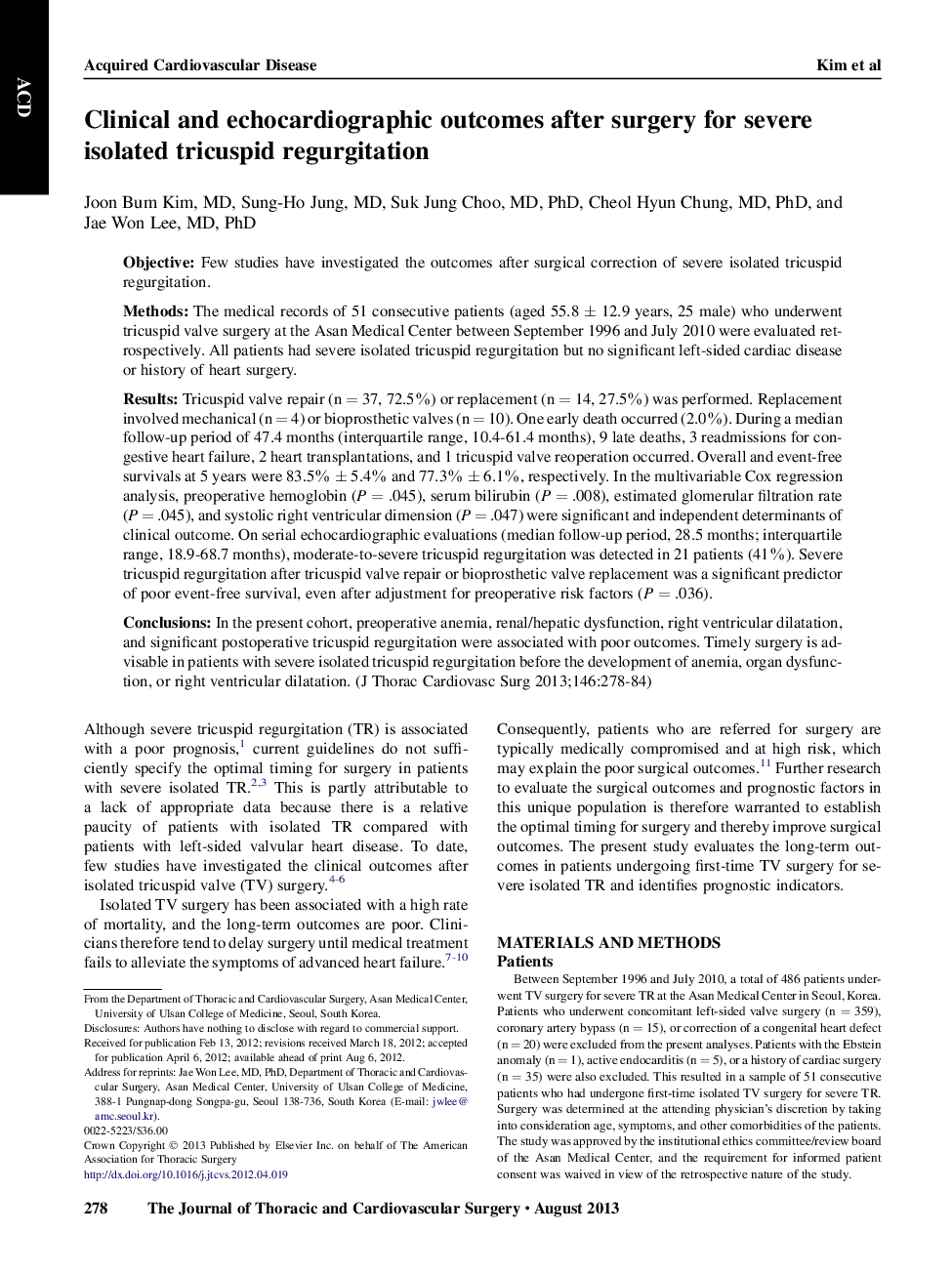| کد مقاله | کد نشریه | سال انتشار | مقاله انگلیسی | نسخه تمام متن |
|---|---|---|---|---|
| 2980908 | 1578620 | 2013 | 7 صفحه PDF | دانلود رایگان |

ObjectiveFew studies have investigated the outcomes after surgical correction of severe isolated tricuspid regurgitation.MethodsThe medical records of 51 consecutive patients (aged 55.8 ± 12.9 years, 25 male) who underwent tricuspid valve surgery at the Asan Medical Center between September 1996 and July 2010 were evaluated retrospectively. All patients had severe isolated tricuspid regurgitation but no significant left-sided cardiac disease or history of heart surgery.ResultsTricuspid valve repair (n = 37, 72.5%) or replacement (n = 14, 27.5%) was performed. Replacement involved mechanical (n = 4) or bioprosthetic valves (n = 10). One early death occurred (2.0%). During a median follow-up period of 47.4 months (interquartile range, 10.4-61.4 months), 9 late deaths, 3 readmissions for congestive heart failure, 2 heart transplantations, and 1 tricuspid valve reoperation occurred. Overall and event-free survivals at 5 years were 83.5% ± 5.4% and 77.3% ± 6.1%, respectively. In the multivariable Cox regression analysis, preoperative hemoglobin (P = .045), serum bilirubin (P = .008), estimated glomerular filtration rate (P = .045), and systolic right ventricular dimension (P = .047) were significant and independent determinants of clinical outcome. On serial echocardiographic evaluations (median follow-up period, 28.5 months; interquartile range, 18.9-68.7 months), moderate-to-severe tricuspid regurgitation was detected in 21 patients (41%). Severe tricuspid regurgitation after tricuspid valve repair or bioprosthetic valve replacement was a significant predictor of poor event-free survival, even after adjustment for preoperative risk factors (P = .036).ConclusionsIn the present cohort, preoperative anemia, renal/hepatic dysfunction, right ventricular dilatation, and significant postoperative tricuspid regurgitation were associated with poor outcomes. Timely surgery is advisable in patients with severe isolated tricuspid regurgitation before the development of anemia, organ dysfunction, or right ventricular dilatation.
Journal: The Journal of Thoracic and Cardiovascular Surgery - Volume 146, Issue 2, August 2013, Pages 278–284